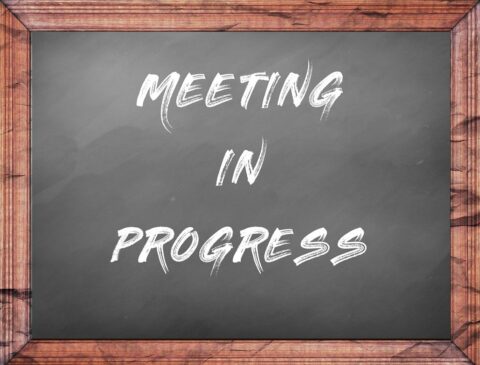Meditation means “to think deeply and continuously about something” …remaining in the presence of God and pondering each truth He reveals …until it becomes real and personal in your life. This takes time. So says Henry Blackaby in his devotional book that I love.
And there’s the issue – time. How many ‘devotional’ books have you had recommended to you, seen in book stores and shelves, given as gifts (or received as gifts) – and why are they so popular? Isn’t it because it is a brief read – gives you the feeling you have had “bible time” and sort of done your duty? A good “thought for the day”?
There is a difference between reading the Bible, or a devotional, and meditating on the Word.
When you meditate on Scriptures, the truth moves from your head to your heart and results in obedience. Psalm 119:11 “I have treasured Your word in my heart so that I may not sin against You.”
Blackaby makes the point that you can reject a doctrine, or ignore a concept or challenge a principle, but it is much more difficult to ignore a Person. When scripture fills your heart, you cannot continue to sin against God – it touches the deepest corner of your soul and transforms you into the image of Jesus Christ. “Don’t just read your Bible; meditate on God’s Word and ask Him to change your heart.”
OK, so how do I do that? And is it any better than reading through a devotional paragraph or page? Do I have to do it in a specific way? And if so, why? Yep, I’m a questioner.
Thomas A. Tarrants had an excellent article on this – he addressed my questions. He is the President Emeritus of the C.S. Lewis Institute. He said meditating on the Scriptures is vital practice for maturing in the Christian life. As one anonymous writer said, “The Bible is not meant merely to inform but to transform.” Throughout history, godly leaders have commended the transforming effects of meditation. Consider this beautiful description by Thomas Brooks, a seventeenth-century church leader:
Remember that it is not hasty reading but serious meditation on holy and heavenly truths, that makes them prove sweet and profitable to the soul. It is not the mere touching of the flower by the bee that gathers honey, but her abiding for a time on the flower that draws out the sweet. It is not he that reads most but he that meditates most that will prove to be the choicest, sweetest, wisest and strongest Christian.
Another heavy hitter theologian, J. I. Packer, added his perspective:
Meditation is the activity of calling to mind, and thinking over, and dwelling on, and applying to oneself, the various things that one knows about the works and ways and purposes and promises of God…. It is an activity of holy thought, consciously performed in the presence of God, under the eye of God, by the help of God, as a means of communion with God.
And then there is George Muller’s description – and this is just a brief sample of his words:
As the outward man is not fit for work for any length of time, except we take food, and as this is one of the first things we do in the morning, so it should be with the inner man. We should take food for that, as every one must allow. Now what is the food for the inner man: not prayer, but the Word of God: and here again not the simple reading of the Word of God, so that it only passes through our minds, just as water runs through a pipe, but considering what we read, pondering over it, and applying it to our hearts….
OK, that is getting more specific, which is what I need. But let’s stay biblical – what does the Bible say about this?
I have recently memorized the first verse in Psalms – I love it’s message and the picture it paints. Psalm 1:1-3 declares the blessedness of the one who walks not in the counsel of the wicked… but his delight is in the law of the Lord, and on his law he meditates day and night. He is like a tree planted by streams of water that yields its fruit in its season, and its leaf does not wither. In all that he does, he prospers. (1:1–3)
When God commissioned Joshua to lead the Israelites into the promised land, He said, “This Book of the Law shall not depart from your mouth, but you shall meditate on it day and night, so that you may be careful to do according to all that is written in it. For then you will make your way prosperous, and then you will have good success” (Joshua 1:8).
For Joshua to be successful in what God had called him to do, he needed to immerse himself in God’s Word and faithfully put it into practice, thereby growing in the knowledge of God and experiencing divine enablement. This ancient truth is as applicable today as it was then. And that is the result I want…but….
Tarrants nails the problem (as I experience it). He says that in today’s fast-paced, stress-filled, high-pressure world, life is hectic and time is at a premium. Meditation takes more time out of our already overloaded schedule. A.W. Tozer’s observation is helpful, “We Christians must simplify our lives or lose untold treasures on earth and in eternity.”
He points out that our lives are so complex as to make the devotional life all but impossible. And yet, he so rightly suggests “the need for solitude and quietness was never greater than it is today.” This highlights the need to find a time to meditate when you will not be in a rushed state of mind and feeling pressed to quickly move on to the next thing.
So– you probably aren’t surprised that I really want specifics – describe it and walk it through for me. Tarrants gave several steps in his much longer article, but I camped on his summary:
… find a quiet place where you will not be distracted and allow twenty to thirty minutes for meditating. Bring your Bible, a notebook, and a pen. To avoid becoming drowsy, avoid beds, overstuffed chairs and sofas; sit in a chair with an upright back. Open your time with prayer, asking God to meet you. If you are new to meditation, start small — perhaps one time a week — and live with the text for the whole week, recalling and pondering it periodically. Most people find it helpful to memorize the text and read it aloud several times, which was the ancient practice and is still widely used today. Select your text from your daily Scripture reading or a passage that speaks to an important need or concern in your life. How large should the chosen text be? Anywhere from one verse to several or possibly a brief parable or story of Jesus. Note anything that applies to your life, and resolve to make whatever changes are necessary. Conclude your meditation by giving thanks to God.
There ya’ go! I’m printing that out and sticking it in my Bible as a guide – at least until I can practice it enough to modify it and fit it to me – and remember it. Sorry to drag you through all this just because I was struggling with it – but hope you found some help and guidance, too!





